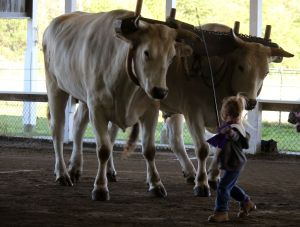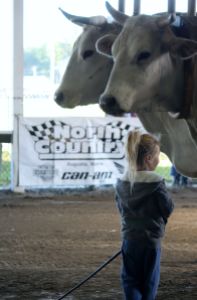Thanks to the “efficiency” of technology, this originally published with the wrong title and I fear went to subscribers with the title “Brain Surgeons and Truck Drivers Unite!” While there are some similarities, that’s a piece being developed for another day!
One of my more interesting assignments recently was working with a group of sixth graders who had just finished reading what is considered a “fractured fair tale”–in this case the story of Little Red Riding Hood written from the wolves perspective. It’s not uncommon to ask students to read (or retell) a common story from another character’s perspective. The educational benefits are many. In this case, their assignment was to consider whether or not the retelling influenced their own perspective.
I was a bit surprised that all but one student readily bought into the wolf’s explanation. Most began to feel sorry for the poor maligned wolf now that they “understood” his perspective and were able to view the facts differently. But as I listened to them explain their conclusions, it was not so surprising. Kids are open-minded–much more so than adults–and are willing to consider new information. Yes, it makes them vulnerable but it also means they can learn and grow at astounding rates.
Now I will confess that I don’t recall ever questioning what happened in that story even as a kid. My reality has always been there was a big, bad wolf, a somewhat naive little girl, and a grandma who has a very brief role. I might have subconsciously identified with the wood cutter–it’s always nice to identify with the hero. (There are several versions of the tale–in the earliest the story ends with grandma and the girl being eaten. They are not rescued. So much for the “happily ever after” aspect of fairy tales.)
Of course, we all know that the point of fairy tales is not to convince kids monsters exist. They already know that. The point of fairy tales is to show kids that monsters can be killed (attributed to G.K. Chesterton).
But in this sixth grade classroom (and, hopefully, many more like it) we find another point of fairy tales is to make us think. I found myself doing exactly that–not so much about whether or not the wolf was actually a victim as about how our perceptions influence our thinking and conclusions. One young fellow in the class took a minority position by remaining convinced that the wolf was a liar and was only trying to fool us the way he’d fooled Little Red Riding Hood. According to this young man, the wolf was “bad to the bone” and we are crazy if we believe otherwise.
But are we?
Let us understand this is not about teaching truth. It might be about searching for the truth. It is certainly about learning. We have plenty of bias and close-mindedness in our adult world. I suspect some of that develops at a very young age when in our desire to protect children we adults create perspectives in them that actually become unchallenged prejudices carried into adulthood. Sometimes those biases are about others; sometimes they are about ourselves.
No matter who they are about, there is a lot to be gained in challenging them. Even if we end up maintaining our original beliefs, we may well gain empathy and understanding of the bigger picture and those around us. That the wolf was big is probably not debatable. But was he truly “bad?” Are you willing to consider that he might merely have been doing what wolves do? In the book, he explains that he looks at grandma the way we might look at a cheeseburger.
In researching this article, I found some interesting theories about fairy tales, including speculation that they provide the “core of ethics.” Now much as I enjoy thinking, I really want to say, “or they might just be stories.” As a writer, I do think we should be careful to leave plenty of room for the reader to draw his or her own conclusions.
So you can decide whether or not the wolf was bad or simply a maligned opportunist–or perhaps even a victim. But you do have to think about it before you decide.
And the next time you hear yourself stating a perception about others (“All politicians are dishonest.”) or yourself (“I suck at math.”) you might consider whether or not that perception is a prejudice–a decision made without really thinking. There may be some new information available or a perspective you haven’t considered. Now that you are an adult, it’s okay to let your beliefs and yourself be a little vulnerable. Remember, this is not a call for you to abandon your beliefs. It’s a call for you to learn and grow even if you end up believing what you always have.





